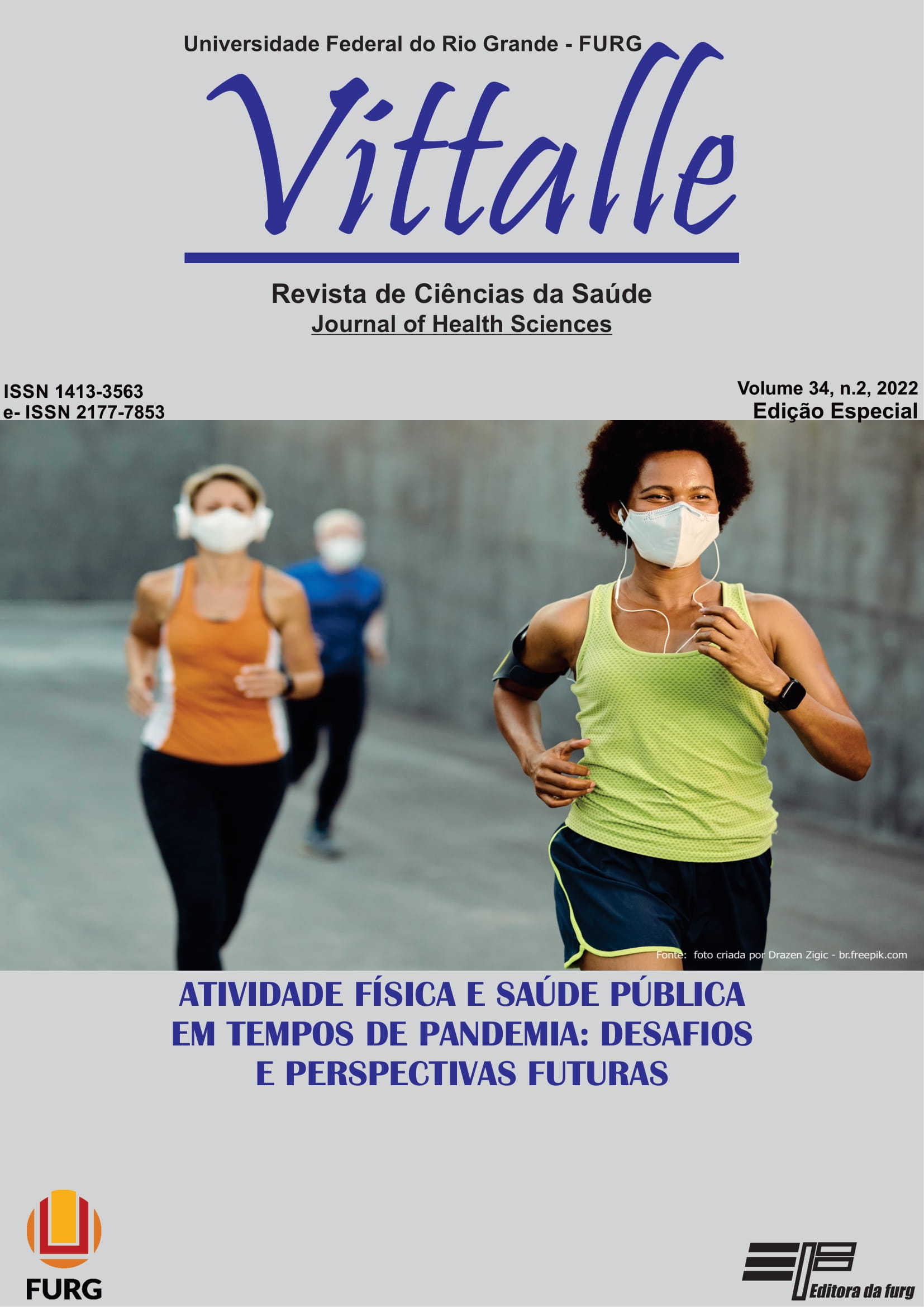Intervenção multiprofissional na saúde mental de estudantes do sexo feminino durante o distanciamento social da COVID-19: estudo piloto
DOI:
https://doi.org/10.14295/vittalle.v34i2.13652Palavras-chave:
COVID-19, distanciamento físico, exercício físico, saúde mentalResumo
A população feminina parece ser a mais vulnerável ao sofrimento psíquico durante o período de distanciamento social para o enfrentamento e controle da COVID-19. Nesse sentido, intervenções de caráter multiprofissional têm sido consideradas como potenciais à saúde mental. Assim, o objetivo do presente estudo foi analisar os efeitos de intervenção multiprofissional, composta por exercício físico, acompanhamento psicológico e nutricional na saúde mental de estudantes do sexo feminino durante o distanciamento social da COVID-19. Trata-se de um estudo piloto com delineamento longitudinal, quase-experimental. O estudo foi estruturado em: 1) Grupo Intervenção Multiprofissional (n=6) - exercício físico supervisionado, 2 vezes por semana, 50 minutos por sessão, ministrados por videoconferência, suporte psicológico e orientação nutricional uma vez por semana através de vídeos; 2) Grupo Controle (n=5) - manteve sua rotina habitual e recebeu uma cartilha com sugestões de exercícios, orientações nutricionais e suporte psicológico. Dados sociodemográficos; nível de atividade física; qualidade de vida; sono; estresse, depressão e ansiedade foram obtidos via Google Forms por Anamnese estruturada; International Physical Activity Questionnaire (IPAQ); Medical Outcomes Study-36-Item Short - Form Health Survey (SF-36); Índice de qualidade do sono de Pittsburgh; Escala de Ansiedade, Depressão e Estresse (EADS-21), antes e depois de 10 semanas. Foi utilizado teste U-Mann Whitney no baseline e estatística descritiva para comparação dos grupos no período experimental. Como resultados principais, o Grupo Intervenção Multiprofissional teve melhora mais pronunciada na qualidade do sono em 16,6% da amostra. Houve aumento de escore nos domínios da qualidade de vida (SF-36): 5,0 na Capacidade funcional; 25,0 em Aspectos físicos; 5,0 em Dor e 16,6 em Aspectos emocionais no Grupo Intervenção Multiprofissional. Os resultados foram semelhantes para ansiedade e estresse entre os grupos. Dessa forma, a intervenção multiprofissional parece contribuir com a qualidade do sono e qualidade de vida, sugerindo os benefícios para saúde mental de estudantes universitárias.





